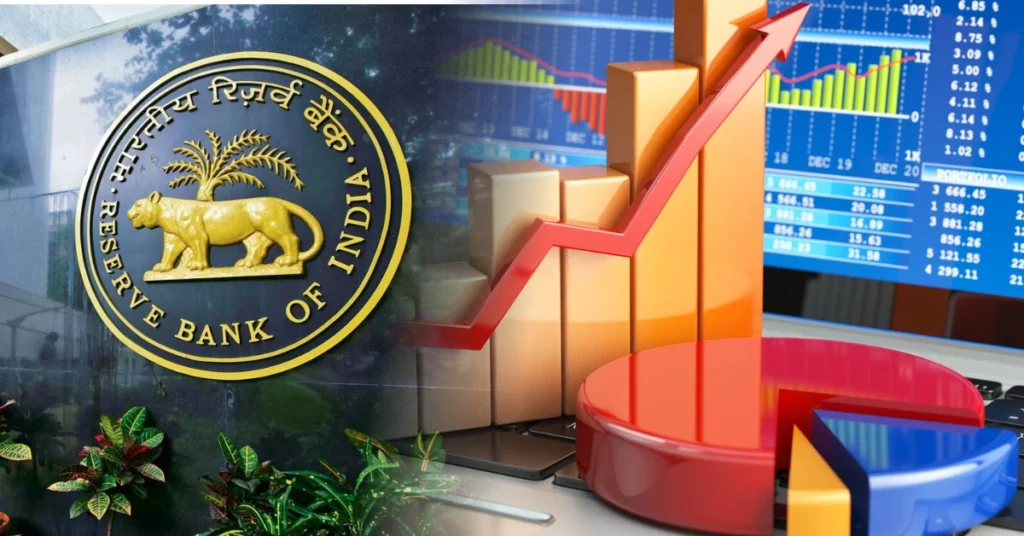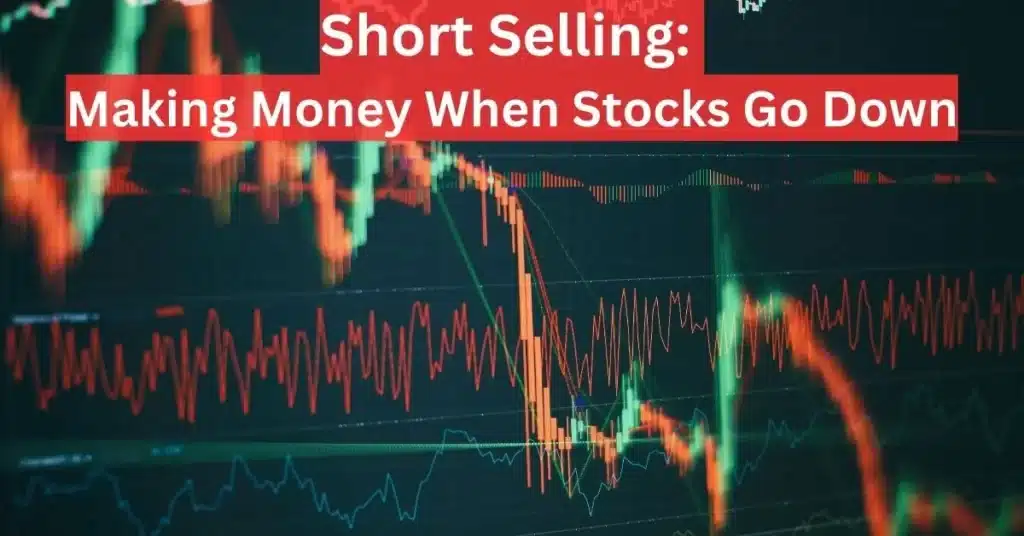The stock market often makes us think of companies, investors, and trends. But one powerful and less visible player significantly impacts the market—the central bank.
In India, the Reserve Bank of India (RBI) plays a key role in shaping the stock market through its policies. Have you ever wondered how this works? Let’s explore!
1. Central Banks: The Stock Market’s Silent Director
Central banks, like the Reserve Bank of India (RBI), are often compared to movie directors—working quietly in the background to ensure the economy runs smoothly.
Their policies and decisions play a critical role in shaping the stock market by influencing factors like monetary policy, interest rates, and liquidity.
Let’s break down how this works:
- Interest Rates:
The RBI adjusts the repo rate—the rate at which it lends money to commercial banks.- When rates decrease: Borrowing becomes cheaper for businesses, encouraging growth and investment. This often drives up stock prices as investor confidence rises.
- When rates increase: Borrowing costs go up, which can slow down business activity and cool the stock market.
- Liquidity Measures:
In challenging times, such as during the COVID-19 pandemic, the RBI injects liquidity into the economy by pumping money into the financial system. This ensures that businesses and banks have enough cash to operate, reducing financial stress and boosting stock market activity. - Inflation Targeting:
Controlling inflation is one of the RBI’s key responsibilities. Stable inflation fosters a predictable economic environment, which is good news for businesses and, in turn, keeps the stock market steady. High or unpredictable inflation, however, can scare investors and lead to market volatility.
Central banks may not be in the spotlight, but their actions are felt across the stock market. From changing interest rates to maintaining economic stability, they are critical players shaping market performance.
2. Policy Announcements and Market Volatility
Imagine this: the RBI announces a sudden change in monetary policy. What happens? The stock market often responds with sharp swings.
Investors quickly adjust their portfolios, weighing the potential risks and rewards of the new policy.
Case in Point:
In 2020, the RBI slashed interest rates to counter the economic effects of COVID-19. The result? A stock market rally.
Lower borrowing costs helped businesses improve profitability, making stocks more appealing to investors.
Takeaway:
Policy changes are more than just headlines—they’re powerful signals that shape market sentiment and investor behavior.
3. Indirect Influences of Central Banks on Stocks
Central banks don’t always impact the stock market through direct actions like interest rate changes. Often, their influence is more subtle yet equally significant.
Exchange Rate Management
The RBI’s interventions in the foreign exchange market play a key role in determining the rupee’s value.
- Weaker Rupee: Export-focused companies benefit as their products become more competitive internationally, boosting their stock prices.
- Stronger Rupee: Import-heavy businesses may see reduced costs, impacting their market valuation positively.
Banking Sector Oversight
The RBI regulates banks to ensure financial stability and reduce risks.
- A robust and well-regulated banking sector gives investors confidence, which indirectly supports stock market growth.
Sentiment Driver
Even the words and tone used by the RBI governor during speeches or policy updates can sway markets.
- Optimistic Tone: Signals growth and stability, often leading to a stock market rally.
- Cautious or Negative Outlook: This can make investors nervous, resulting in a dip in stock prices.
By managing these broader economic factors, the RBI indirectly shapes market trends and investor decisions.
4. Global Context: Central Banks Aren’t Alone
India’s stock market doesn’t operate in isolation. Decisions by global central banks, such as the US Federal Reserve, often have a direct impact on Indian markets.
How It Works:
When the Fed raises interest rates, it can make US assets more attractive to foreign investors. As a result, funds may flow out of emerging markets like India, leading to a drop in stock prices.
Did You Know?
In 2022, the Fed’s aggressive rate hikes triggered significant foreign outflows from India. This caused major stock indices like the Nifty and Sensex to decline, showcasing how closely Indian markets are tied to global monetary policy shifts.
Global central bank actions are a reminder that the interconnectedness of economies affects not just exchange rates and trade but also the pulse of stock markets worldwide.
5. Challenges and Criticisms
While central banks are crucial for maintaining economic stability, their actions can sometimes lead to unintended consequences.
Excessive Intervention
Prolonged low interest rates, often used to stimulate growth, can inflate stock market bubbles. Over time, these bubbles may burst, leading to significant financial instability.
Over-Tightening Policies
On the flip side, tightening policies too quickly—such as raising interest rates or reducing liquidity—can stifle economic recovery and discourage investments.
Real-Life Impact: The 2013 Taper Tantrum
A striking example is the taper tantrum of 2013. When the US Federal Reserve hinted at scaling back its bond-buying program, emerging markets like India faced a capital exodus. source.
The sudden outflows caused stock markets to tumble and currencies to depreciate, highlighting the vulnerability of markets to abrupt policy shifts.
Central banks walk a fine line between stimulating growth and ensuring stability. Striking the right balance remains a persistent challenge.
6. What It Means for Investors Like You
You might think central bank policies are only for economists and policymakers, but as an investor, understanding their role can give you a significant advantage. Here’s how:
Stay Updated
Keep track of announcements from the RBI. These updates often provide clues about the direction of interest rates, liquidity, and overall market trends, helping you make informed decisions.
Diversify Your Portfolio
Central bank policies don’t affect all sectors equally. While some industries may benefit from lower interest rates, others might struggle. Diversifying your investments across sectors reduces risk and balances the impact of policy changes.
Be Patient
Central bank actions can trigger short-term market swings. However, their ultimate goal is long-term economic stability.
Patience and a focus on long-term investments can help you ride out volatility and achieve steady growth.
By understanding the role of central banks, even an average investor can navigate market uncertainties with more confidence.
Final Thoughts
The Role of Central Banks in the Stock Market is like a dance—sometimes smooth, sometimes unpredictable.
Central banks, like the Reserve Bank of India (RBI), primarily focus on maintaining economic stability, but their policies inevitably ripple through the stock market.
They influence stock prices, trends, and investor decisions with actions like interest rate changes, liquidity measures, and inflation control.
For investors, staying informed about central bank actions is not just helpful—it’s essential. Understanding these forces equips you to navigate the stock market’s ups and downs more effectively.
Have questions about investing or central bank policies? Drop them in the comments—we’re here to help!



